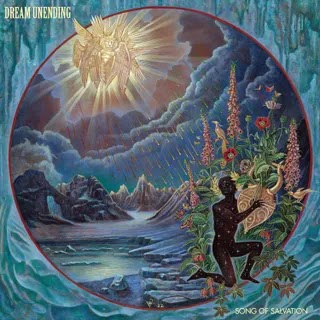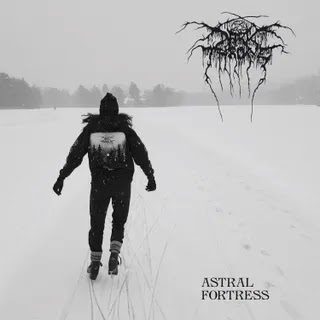The London hardcore band’s second album takes a bolder, brighter approach. Its embrace of self-love and community feels radical and hard-earned.
On the cover of Ithaca’s 2019 debut, The Language of Injury, a bright pink chef’s knife carved up a grayscale image of your standard raucous hardcore show. So too did the London five-piece make mincemeat of monotonous metalcore, skewering its exclusionary history while folding in adventurous tastes of other genres. The shirts emblazoned with “Stop supporting racist bands” and the press releases decrying metallic hardcore’s “lack of ambition” weren’t just a public-facing persona—the music went there, too. Language managed to incorporate doom, crust, black metal, and screamo, while vocalist Djamila Boden Azzouz threw down the gauntlet to contemporaries with lyrics like, “Nothing you say moves me/You’re not what you said you’d be.” Ithaca were a band on a mission, bursting into the genre and fighting their way out for 31 relentless minutes. Now they’ve reached the throne room.
They Fear Us, their second album, doesn’t lack aggression—it opens with Boden Azzouz spitting out the bones of her enemies over a windmill kick of a groove: “Don’t say you can take it/Don’t think I won’t break it.” But unlike Language, this isn’t an album focused entirely on pummeling the status quo into submission. In a recent interview, Boden Azzouz called They Fear Us “so much more triumphant” than its predecessor, and this change becomes obvious less than a minute into the album, when the clouds part for the soaring hook of “In the Way.” The guitars brighten, the drums accelerate from a stomp to a gallup, and Boden Azzouz’s clean vocals take the reins: “Here it goes/Aspiration holds.”
Throat-shredding hardcore vocalists pivoting to more melodic fare can be a sore subject among fans, but Boden Azzouz is better equipped (and qualified) for the transition than many of her reedy-voiced peers. She studied musical theater for a few years at the University of Leeds, and on They Fear Us, you can tell. Whereas her singing took a backseat to her screaming on Language, now the two vocal styles receive almost equal airtime. The rest of the band responds by building songs around brighter, dare-I-say hammier melodies. Language relied on the classic post-hardcore move of contrasting all-out assaults with quiet, pretty moments, but They Fear Us’ beauty is louder, bolder, and more drawn-out.
In the past few years, shoegaze has emerged as the destination of choice for heavy musicians seeking to pivot, and They Fear Us proves that Ithaca are not immune. The album’s lush sound and clean hooks pit them ever closer to UK forebears like Svalbard and Rolo Tomassi, and Ithaca wield the influence while maintaining their own unshakeable personality. “Fluorescent” in particular nails that gloriously synthetic Diamond Eyes sheen with its rich palette of digitized guitar effects and Boden Azzouz’s Chino Moreno-esque ability to switch from a keening wail into a screech at the drop of a hat. All the while, drummer James Lewis keeps the band’s heavy chops at the forefront with alternating double-pedaled breakdowns and peppy blastbeat/D-beat hybrids.
The only remnant of Language’s whiplash-inducing transitions is the band’s deft weaving between burly beatdowns and more buoyant, arena-ready fare. Check out the title track, where the lofty, clean lyrics “Bow to your blood/Your queen and/Your God” are paired with heavenward Coheed and Cambria guitar harmonies, before Boden Azzouz turns on her snarl and the guitars follow suit with nasty low-end arpeggios. The distorted squeal that hits right when Boden Azzouz lowers her voice at the end of the lines, “You think we’re lightyears away/You think we’re decades” exemplifies how the band’s skilfull play of tension and release mirrors her vocal approach.
Ithaca save their boldest trick for last, closing They Fear Us with the gorgeous, bald-faced pop song “Hold, Be Held.” Opening like a Bloc Party ballad with chiming guitars and a sparse drum machine, the song blooms into a full-throated chorus before Boden Azzouz cedes the mic to guest vocalist Yansé Cooper, whose fluttering voice is eventually woven into a rich round with backing screams and the original chorus. The song’s open-hearted cry is a radical choice for a closing statement, befitting a hardcore album so radical in its embrace of self-love and community. Musically, They Fear Us is bolder than its predecessor—more confident in its melodies, more unconcerned with heavy music posturing—and Boden Azzouz matches this evolution in her performance: She has shifted from seething outward angst to seeking strength within.
















0 comments:
Post a Comment